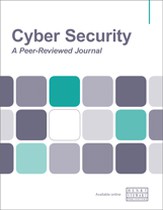How national CSIRTs leverage public data, OSINT and free tools in operational practices: An empirical study
Abstract
Computer security incident response teams (CSIRTs) have been established at national and organisational levels to coordinate responses to computer security incidents. It is known that many CSIRTs, including national CSIRTs, routinely use public data, open-source intelligence (OSINT) and free tools in their work. The current literature, however, lacks research on how such data and tools are used and perceived by the staff of national CSIRTs in their operational practices. To fill such a research gap, an online survey and 12 follow-up semi-structured interviews with staff of 13 national CSIRTs from Asia, Europe, Caribbean and North America were carried out. The aim was to gain detailed insights on how such data and tools are used and perceived by staff in national CSIRTs. The study was conducted in two stages: first with MyCERT (Malaysia’s national CSIRT) to gain some initial results, and then with 12 other national CSIRTs to expand the results from the first stage. Thirteen participants from MyCERT completed the survey and seven of them took part in a semi-structured interview; 12 participants from 11 other national CSIRTs took the survey and five participants from five national CSIRTs were interviewed. Results from the survey and the interviews led to three main findings. First, the active use of public data, OSINT and free tools by national CSIRT staff was confirmed, eg all 25 participants had used public data for incident investigation. Second, all except two (ie 23 out of 25, 92 per cent) participants perceived public data, OSINT and free tools to be useful in their operational practices. Third, there are a number of operational challenges regarding the use of public data, OSINT and free tools. In particular, there is a lack of standard and systematic approaches on how such data and tools are used across different national CSIRTs. There is also a lack of standard and systematic processes for validating such data and tools. These findings call for further research and development of guidelines to help CSIRTs to use such data and tools more effectively and more efficiently.
The full article is available to subscribers to the journal.
Author's Biography
Sharifah Roziah Binti Mohd Kassim is a second year PhD Computer Science student at the School of Computing, University of Kent, UK, focusing research in the area of cyber security. Sharifah is also a Specialist in Malaysia Computer Emergency and Response Team (MyCERT) under the umbrella of CyberSecurity Malaysia, a registered and semi-government entity in Malaysia. Her research interest is primarily in computer security incident response and cyber threat intelligence. Sharifah has authored four papers and co-authored one paper on cyber security topic prior to pursuing her PhD.
Shujun Li is a Professor of Cyber Security at the School of Computing, University of Kent in the UK. He is the Director of the Institute of Cyber Security for Society (iCSS), which represents the University of Kent as one of 19 UK government recognised Academic Centres of Excellence in Cyber Security Research (ACEs-CSR). His research interests are mostly around interdisciplinary topics covering cyber security and privacy, human factors, digital forensics and cybercrime, social media analytics, and AI. He has published over 100 research papers at international journals and conferences, and received three Best Paper Awards (at IIEEK IEVC 2012, HAS 2017 and HICSS 2021) and a Honourable Mention (at ICWSM 2020). He published a monograph on cognitive modelling (Springer 2020), and co-edited four books including Handbook of Digital Forensics of Multimedia Data and Devices (John Wiley & Sons, Inc. and IEEE Press 2015). In 2012, he received an ISO/IEC Certificate of Appreciation, for being the lead editor of ISO/IEC 23001-4:2011, the 2nd edition of the MPEG RVC (Reconfigurable Video Coding) standard. He is currently on the editorial boards of a number of international journals, and has been on the organising or technical program committees of over 100 international conferences and workshops. He is a Fellow of BCS, a Senior Member of IEEE, and a Member of ACM. He is a Vice President and Founding Co-Director of the ABCP (Association of British Chinese Professors). More about his research and professional activities can be found at his personal website http://www.hooklee.com/
Budi Arief is a Senior Lecturer at the School of Computing, and the Innovation Lead at the Institute of Cyber Security for Society (iCSS), both at the University of Kent, UK. His research interests are in cybercrime, the security and dependability of computer-based systems, ransomware, and the Internet of Things, with a strong overarching element of interdisciplinary research. So far, he has published over 50 research papers in the areas of computer security (especially in the topics of ransomware, the Internet of Things, and human factors), dependability, and Intelligent Transport Systems, leading to 1,300+ Google Scholar citations with h-index of 15.
